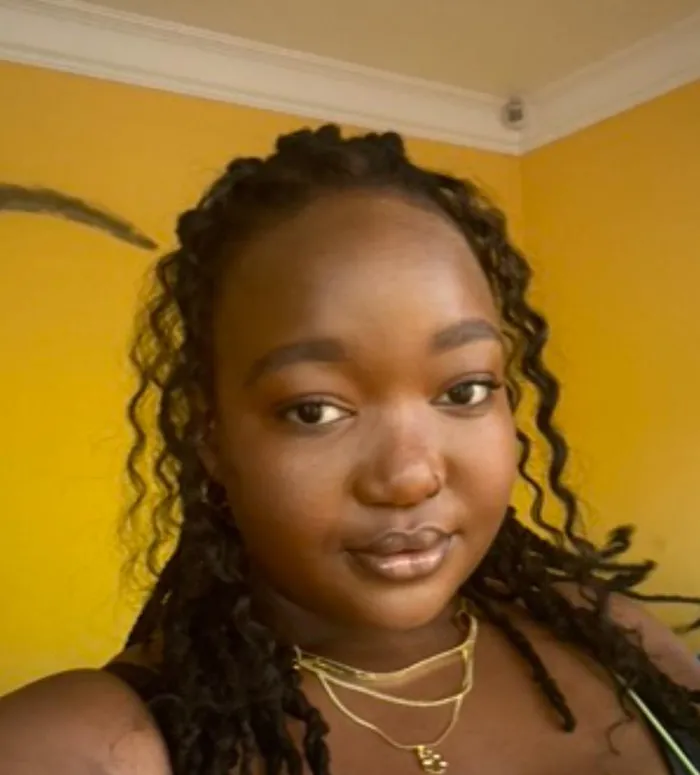
Tswelopele Makoe is a gender and social justice activist. She is a researcher, columnist, and an Andrew W Mellon scholar at the Desmond Tutu Centre for Religion and Social Justice, UWC.
Image: Supplied / GSMN
ACROSS South Africa, glossy promotional videos celebrate the rise of “smart cities” — gleaming skylines, manicured sidewalks, and futuristic visions of progress. They speak of innovative skyscrapers, of pristine streets humming with electric vehicles, of a country boldly stepping into tomorrow.
On the surface, these futuristic enclaves look like symbols of hope for a nation struggling with decay. But beneath the shimmering glass and steel facades lies an unsettling truth: these cities are not being built for South Africans, but around them.
Despite it being over three decades since the dawn of democracy, South Africa remains the most unequal society in the world. According to the World Bank, our Gini coefficient — a measure of income inequality — hovers around 0.67, the highest in the entire world. This is more than a mere statistic; this is the trait of a nation still bound by the very inequalities it once vowed to dismantle.
Decades after the barbaric apartheid regime’s end, our landscapes still bear its imprint — separation masked as development. Wealth and whiteness cluster in gated sanctuaries, while poverty and blackness sprawl in neglected townships and crumbling urban centres. It is a devastating fact that, over thirty years since liberation, South Africans still live apart, not by law, but by the economics that replaced it.
In the recent rush to construct “new cities” — from the R27 billion Southern Farms Mega City project in Johannesburg South, to the Bankenveld District City Project on the edge of Sandton — what is frequently overlooked is the fact that these new developments reflect the same logic that produced apartheid’s spatial design: exclusion through economics.
The overarching problem with these new developments is that they are priced for the elite few, not the everyday South African. A simple two-bedroom flat costs more than R2m — an impossible figure in a country where the median worker takes home around R14 000 a month.
The irony is painful. The very people who build these cities — the construction workers, cleaners, domestic staff, security guards — will never live in them. In fact, this is the tale of millions of South Africans who, from dawn to dusk — through highways, buses, and backstreets — arduously serve cities that they will never call home.
This is not progress. It is a privatised utopia built on the foundations of public neglect.
Meanwhile, our existing cities — from Johannesburg, to Durban, to Mthatha and beyond — are deteriorating before our very eyes. Infrastructure is crumbling, service delivery is sporadic at best, and water and power shortages have become daily routines.
Johannesburg alone loses nearly 40% of its water to leaks and theft. From load shedding in Limpopo to endless sewage spills in Cape Town, neglect has become so common that outrage has been replaced by resignation. Yet, in the midst of this decay, billions of rand are being poured into “new cities” — as if abandoning the old will somehow erase the failures right in front of our eyes.
We are witnessing a dangerous shift in development priorities: from inclusive public investment to elite-driven urban speculation. Despite the vehement calls for National Dialogues and G20 discourses, our development agenda continues to privilege profit over people. The real conversations — about poverty, housing, and dignity — remain ignored. Vital decisions are still confined to boardrooms, not in the communities they actually affect.
Government leaders tout these projects as evidence of visionary governance and economic progress. But progress for whom? When only 10% of South Africans can afford a home loan, when 8.4 million South Africans remain unemployed, and when millions live in informal dwellings without access to water or electricity, such projects become monuments to inequality, not solutions to it.
The question is not whether South Africa can build new cities. It’s whether we can build a new society. Although these flamboyant new developments bring about grandiose promises of employment, development, and empowerment, they do not consider the rough reality of the millions being beaten down by Cupcake’s economy (Ramaphosa’s economy).
The reality is that, in 2025, about 70% of the entire nation is living in poverty (according to the World Bank). In fact, independent economist Elize Kruger reported that only 15.8% of South Africans would be able to afford a R1.3m property in 2025. Who then are these “new cities” catering for?
Imagine if the same billions spent on constructing smart cities were directed toward rehabilitating our existing ones — upgrading informal settlements, expanding affordable housing, fixing decaying infrastructure, and investing in public transport. That is the real smart city: one where the people who make the city live in it, own it, and shape it.
As long as we prioritise spectacle over substance, and profit over people, our new cities will remain hollow testaments to inequality. We cannot keep mistaking spectacle for progress. Our current homes, schools, and cities are collapsing on top of us. The answer is certainly not to shovel hard-earned taxes towards shiny new monuments. It is to address the crippling challenges that we already contend with.
We can no longer remain trapped in an echo chamber — debating transformation while reproducing exclusion. As author Jane Jacobs once eloquently stated: “Cities have the capability of providing something for everybody, only because, and only when, they are created by everybody.”
* Tswelopele Makoe is a gender and social justice activist and editor at Global South Media Network. She is a researcher, columnist, and an Andrew W Mellon scholar at the Desmond Tutu Centre for Religion and Social Justice, UWC.
** The views expressed here do not reflect those of the Sunday Independent, IOL, or Independent Media.